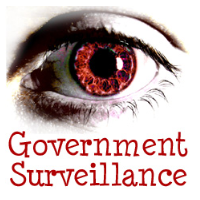Anti-Terrorism Reports on Suspicious Activity Posted Online

Suspicious-activity reports—gathered by law enforcement agencies for two Department of Homeland Security (DHS) fusion centers in California—are filled with perfectly legal, often innocuous behavior by citizens when they’re not ethnically profiling people.
The American Civil Liberties Union (ACLU) released 1,800 of the documents (pdf) Thursday after obtaining them from fusion centers in Central and Southern California via Freedom of Information requests. The Northern California center refused the request.
A San Jose Mercury News analysis of the documents found that half of the reported incidents resulted in a visit from the FBI. The reports included: a man “nonchalantly taking photos” while traveling on the Los Angeles subway; a “notable increase” in women wearing veils and burqas at a shopping mall; a big-rig driver sporting an upside-down American flag; and someone scrawling anti-government slogans on a wall at the University of California, Davis.
The government “should not be putting us in databases as potential terrorists when we have nothing to hide and haven't done anything wrong,” Linda Lye, an attorney for the ACLU of Northern California, said of the reports.
Activity like this is happening all across the country. Congress created 72 so-called fusion centers after the attacks of September 11, 2001, to coordinate information streaming in from a multitude of local, state and federal sources. Then-DHS Secretary Janet Napolitano called the program “one of the centerpieces of our counterterrorism strategy.”
A congressional report (pdf) last October raised serious questions about the program’s cost, effectiveness and threat to the privacy of Americans. “The subcommittee investigation could identify no reporting which uncovered a terrorist threat, nor could it identify a contribution such fusion center reporting made to disrupt an active terrorist plot,” the report concluded.
Senate investigators looked at 610 draft reports created by fusion centers between April 1, 2009, and April 30, 2010. Only 94 (15.4%) were even related to terrorism. Double that, 188, were cancelled because they lacked “useful information” or violated civil liberties or privacy.
The centers circulated information about Ron Paul supporters, the ACLU, activists on both sides of the abortion debate, war protesters, advocates of gun rights and Muslim community group and mosque activities—including book recommendations and parenting classes—that were clearly innocent. Although the federal government is barred from storing information about First Amendment activities unrelated to criminal activity, DHS kept these reports on its computers, despite knowing they were worthless.
Those findings were amplified by disclosures in the reports obtained by the ACLU, which also included these threats to the republic: “Clean-cut Middle Eastern males speaking excitedly in a foreign language;” an art professor taking photographs in an industrial part of San Diego; and a free-lance photographer shooting an oil refinery in Los Angeles.
The L.A. photographer, Hal Bergman, told the Mercury News, “It’s a permanent record. Who has access to this? Am I going to have a problem flying or getting across the border?”
Those are good questions, and may be duly noted in his file.
–Ken Broder
To Learn More:
The Government Is Spying on You (American Civil Liberties Union of Northern California)
Surveillance: Civil Rights Groups Seek End to Collection of Government Reports on “Suspicious Activity” by Americans (by Thomas Peele and Josh Richman, San Jose Mercury News)
ACLU Faults “Suspicious Activity” Reporting by Law Enforcement (by Steve Gorman, Reuters)
Homeland Security Fusion Centers: Surveillance Gone Wild (by Matt Bewig, AllGov)
- Top Stories
- Controversies
- Where is the Money Going?
- California and the Nation
- Appointments and Resignations
- Unusual News
- Latest News
- California Forbids U.S. Immigration Agents from Pretending to be Police
- California Lawmakers Urged to Strip “Self-Dealing” Tax Board of Its Duties
- Big Oil’s Grip on California
- Santa Cruz Police See Homeland Security Betrayal in Use of Gang Roundup as Cover for Immigration Raid
- Oil Companies Face Deadline to Stop Polluting California Groundwater





